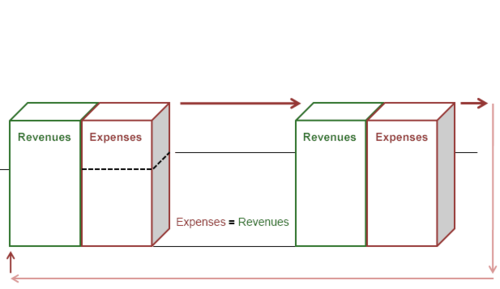The Balances Mechanics (German: Saldenmechanik; from balances of bookkeeping respectively the credit system and mechanics to characterize the strict universal identities) is a work and mean of economics, comparable with Stock-Flow Consistent Modelling. Statements of Balances Mechanics are not based on assumptions and preconditions of a model but are of trivial arithmetic nature, usually shaped as equation and universal without restrictions. Balances Mechanics were developed by Wolfgang Stützel and published in his books Paradoxa der Geld- und Konkurrenzwirtschaft (Paradoxes of Competition-Based Monetary Economies) and Volkswirtschaftliche Saldenmechanik (Balances Mechanics of Economics).[1]

- ^ Both texts have not been translated into English yet (03/2015). A summary in English is available in Charlotte Bruun's 1995 Dissertation: "Logical Structures and Algorithmic Behavior in A Credit Economy" (online Archived 2014-04-14 at the Wayback Machine), Chapter 3: "The Logical Structure of a Monetary Economy", pp. 78-98 (online Archived 2016-03-04 at the Wayback Machine)
- ^ Wolfgang Waldner, 13. Dezember 2013: flassbeck-economics: Die monetäre Konjunkturtheorie von Keynes:
"Es existiert ein Widerspruch zwischen dem, was gesamtwirtschaftlich sinnvoll, und dem, was für die Einzelnen vorteilhaft ist. Eine Ökonomie kann kein Geld sparen, jede Einschränkung der Ausgaben führt zum Verlust von Einnahmen." (English: "It exists a contradiction between what is useful for the overall economy and what is beneficial for the individual. An economy cannot save money, every restriction of expenses leads to loss of revenues.")
